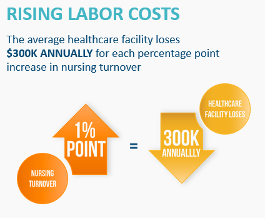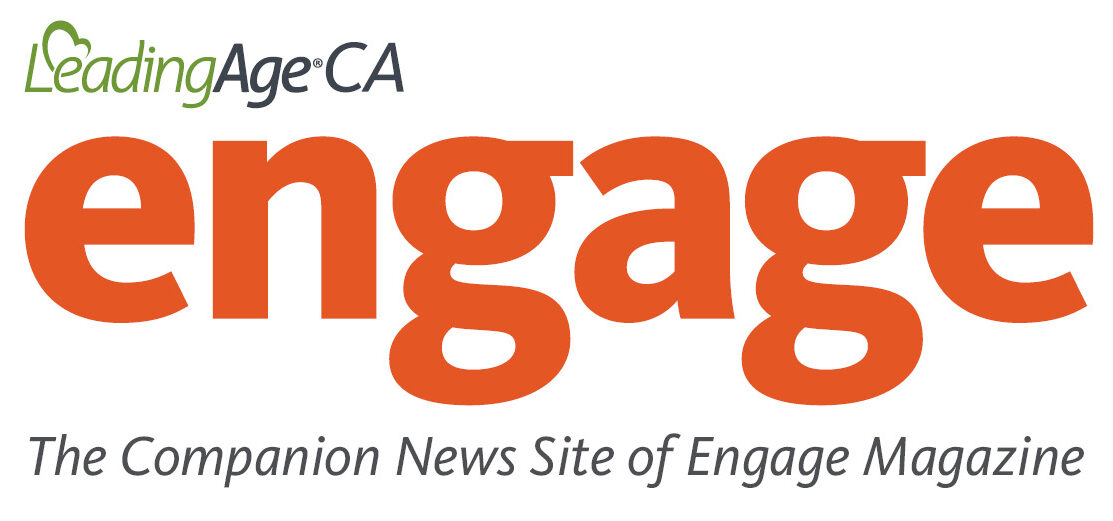By Karilyn Van Oosten, Vice President, Strategic Business Development, Unitek Learning
I am the Vice President of Strategic Business Development for Unitek Learning. I have been working in the healthcare education industry for over 20 years, and in that time, I’ve built multiple customized programs for both healthcare systems and higher education institutions. These types of partnerships allow healthcare facilities to do what they do best – provide excellent care to patients, without trying to become a college on the side. Instead, healthcare facilities can let educational institutions to do what they do best – educate the rising workforce.
 When a partnership succeeds, it means healthcare facilities are staffed with well-trained, practice-ready staff. This helps improve patient outcomes.
When a partnership succeeds, it means healthcare facilities are staffed with well-trained, practice-ready staff. This helps improve patient outcomes.
The last two years have been full of challenges, many of which have fallen heavily on our healthcare workforce. In addition to the tragic, primary impacts of the pandemic – sickness and loss – we’ve been faced with a worsening workforce shortage. The burnout and uncertainty felt among all our staff has clearly taken its toll.
I’m awestruck at the heroics I’ve witnessed from the healthcare workforce as they’ve gone above-and-beyond to provide care to patients, especially in long-term and skilled nursing settings. Their dedication speaks to a grit and determination that can’t be taught in the classroom. However, helping our staff match that grit with the right skillset is absolutely essential for leaders.
One firm found that ill-prepared staff are more likely to experience burnout, which is a primary factor in turnover.
It’s critical that leaders work to upskill healthcare workers wherever they find themselves in their healthcare journey.
By building their skillset from their first nursing classes all the way to advanced education, leaders can strengthen their workforce and help mitigate the impacts burnout – decreasing turnover in the process.
Many clinicians I’ve spoken with frequently cite the short staffing as a key component of the burnout they themselves feel. This can create a self-perpetuating problem threatening to rapidly spiral out of control.
By focus on building skillset early – through using the latest technology like VR – educational partners can short-circuit the burnout spiral. Building skillset is easier said than done, given all the disruptions of the last couple of years. However, Unitek Learning hasn’t had a single cohort of students finish late.
This is a credit to our clinical partners, who have worked tirelessly to help us find and fill our student’s educational needs. Thus, ensuring each cohort finishes completes their program successfully and on time.
It’s hard to understate how important it is to keep our hospitals, clinics and healthcare facilities staffed with a compassionate, driven workforce. You don’t need to look further than our own recent history to see how bad things can get when we don’t have enough of those skilled and motivated healthcare heroes. That understanding is what drives me every day to do whatever I can to help solve labor shortages in healthcare.
And so, in the midst of a worldwide pandemic, we’ve done what we always do – deliver educational opportunities to the next generation of healthcare heroes. Still, it’s important to ask occasionally ourselves why we do what we do.
Recently, a colleague from Unitek Learning’s Brookline College shared a story that perfectly captures our ‘why.’
As a student advisor, she noticed one morning that one of her students looked as though they’d recently been crying. She invited the student into her office, offered a tissue and gave them a safe place to talk. The student said, through tears, that they couldn’t afford to feed their child that week because their partner had left suddenly, draining all the money from their bank account.
Immediately, my colleague walked with this student to fill six bags of groceries from the food pantry that Brookline keeps for students in a pinch. We know people come to us for education so they can build a better life, and sometimes that means they need a few bags of extra care. With everything that’s happening in the world, the last thing our students should worry about is where their next meal is coming from.
This student took the groceries with tear-filled eyes. While those groceries certainly didn’t have the power to fix the world, they took a huge obstacle out of the path of a future healthcare all-star trying to improve their life.
This is why I got involved in healthcare and education. Of all the fields that could hold my time and attention, I knew I could find some of the best, brightest, and most compassionate people in the healthcare workforce. The healthcare workforce is full of deeply caring people who want to alleviate the pains of life we all eventually face. You’d be hard-pressed to find another industry so focused on people.
In fact, three months later, that same student walked back through my colleague’s door. They had graduated, found a job in their new field, and had moved into a new apartment. They were back on campus to pay it forward. They came in with far more groceries than they’d taken months earlier, asking they be added to the Brookline pantry.
I’m happy to know Unitek played a part in that student’s turnaround success. I’m also confident that the facility they’ve joined is better served by their honest dedication.
While it may not always be with groceries, our workforce in healthcare is always opening their proverbial pantry and sharing of themselves with the patients they care for. And my entire team is dedicated to helping your build that workforce. We take the heartfelt compassion we see from our students and match it with the healthcare skillset they need to improve their lives and the lives of your patients.
Learn more about partnering with Unitek Learning here.



